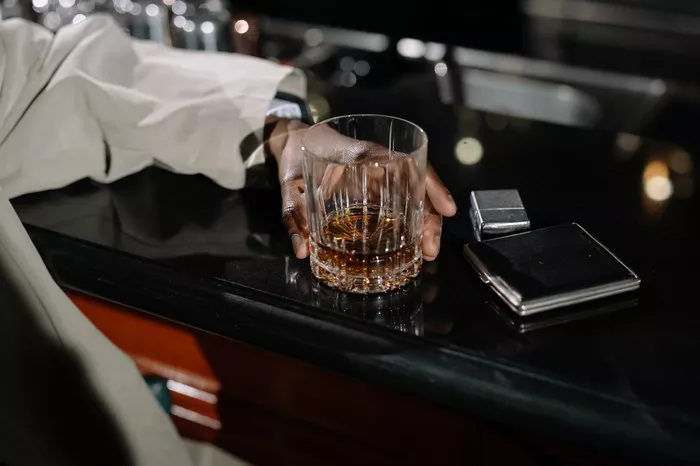The world of alcoholic beverages is vast and varied, with each libation offering a unique profile of flavors and characteristics. Among these, brandy stands out as a distinguished and complex drink. However, a common question often arises: Is brandy a spirit or a wine? To unravel this enigma, it’s essential to delve into the production process, the key ingredients, and the historical evolution of brandy.
Defining Brandy: A Spirited Inquiry
At its core, brandy is unmistakably a spirit, a distilled alcoholic beverage that emerges from the fermentation and distillation of fruit juices, most commonly wine. This process involves transforming the sugars in the fruit into alcohol, resulting in a potent and flavorful spirit. The distinctive taste and aroma of brandy can be attributed to the careful selection of fruits, the fermentation method, and the aging process, all of which contribute to its classification as a spirit.
The Grape Connection: A Link to Wine
To discern whether brandy is more aligned with spirits or wine, one must acknowledge the strong connection between brandy and its viticultural origins. The primary ingredient in most brandies is wine, and the quality of the grapes used significantly influences the final product. The grape varieties, terroir, and climate conditions play a pivotal role in shaping the characteristics of the wine, which, in turn, influence the flavor profile of the distilled brandy. In this sense, brandy maintains a symbiotic relationship with wine, showcasing its inherent connection to the world of viticulture.
The Production Journey: Fermentation to Distillation
Wine as the Precursor
To comprehend the intricate journey of brandy from grape to glass, one must begin with the creation of wine. Grapes undergo fermentation, a natural process where sugars are converted into alcohol by yeast. The resulting wine serves as the precursor to brandy, providing the raw material for the subsequent distillation process. This crucial stage lays the foundation for brandy’s classification as a spirit, as it marks the initiation of the transformation from a mere grape derivative to a more concentrated and potent form.
See Also: luxury tequilas
The Distillation Alchemy
The pivotal moment in determining whether brandy is a spirit or a wine lies in the distillation process. After the initial fermentation, the wine is subjected to distillation, a method that separates alcohol from water and other components. This distillation process enhances the alcoholic content and concentrates the flavors, giving birth to the spirit we know as brandy. The distillation step unequivocally places brandy in the category of spirits, distinct from its vinous origins.
Aging and Maturation: Spirit’s Rite of Passage
Oak Barrels and Transformation
As the distilled liquid embarks on its journey towards becoming brandy, the aging and maturation process takes center stage. This stage is pivotal in shaping the spirit’s character and flavor profile. The use of oak barrels for aging is a defining feature, with the wood imparting distinct aromas, colors, and textures to the liquid. This transformative period in brandy’s life echoes the traditions of spirits rather than wines, solidifying its identity as a spirit with nuanced complexities.
Evolution of Flavors
During the aging process, brandy undergoes chemical reactions within the oak barrels, allowing it to evolve and develop a spectrum of flavors. The influence of the wood, along with environmental factors such as temperature and humidity, contributes to the unique taste and aroma of the final product. While wine can also age, the nature of these transformations aligns more closely with the characteristics associated with spirits, further supporting the argument that brandy is, indeed, a spirit.
Varieties and Styles: A Tapestry of Spirituous Elegance
Cognac, Armagnac, and Beyond
To explore the vast world of brandy is to encounter a diverse array of styles and varieties, each with its own distinct characteristics. Cognac and Armagnac, originating from France, are among the most renowned types of brandy. These varieties undergo specific production methods and are subject to geographical indications, emphasizing the importance of tradition and terroir. The intricacies involved in crafting these fine spirits reinforce the spirituous nature of brandy, setting it apart from the realm of wines.
Brandy’s Global Odyssey
Beyond the French classics, brandy manifests in various forms across the globe, from the smooth and mellow American brandies to the bold and robust South American Pisco. The methods employed in crafting these diverse styles align with the techniques characteristic of spirits rather than wines. The global exploration of brandy reveals its adaptability to different climates, soils, and traditions, affirming its identity as a spirit that transcends geographical boundaries.
Conclusion: Bridging the Divide
In conclusion, the question “Is brandy a spirit or a wine?” prompts a profound exploration of the production process, historical context, and global variations of this distinguished beverage. While brandy starts its journey with the fermentation of wine, it unequivocally transforms into a spirit through the distillation process. The aging and maturation stages, coupled with the diverse varieties and styles, further cement brandy’s place in the realm of spirits.
As we savor a glass of brandy, whether it’s the refined notes of Cognac or the bold expressions of American brandy, we appreciate the intricate craftsmanship that transforms grapes into a spirituous elixir. In essence, brandy bridges the divide between spirits and wine, offering a harmonious fusion of the two worlds. Whether enjoyed neat, in a classic cocktail, or as a digestive, brandy remains a testament to the rich tapestry of flavors that emerge when tradition, terroir, and distillation converge in a single, captivating sip.


